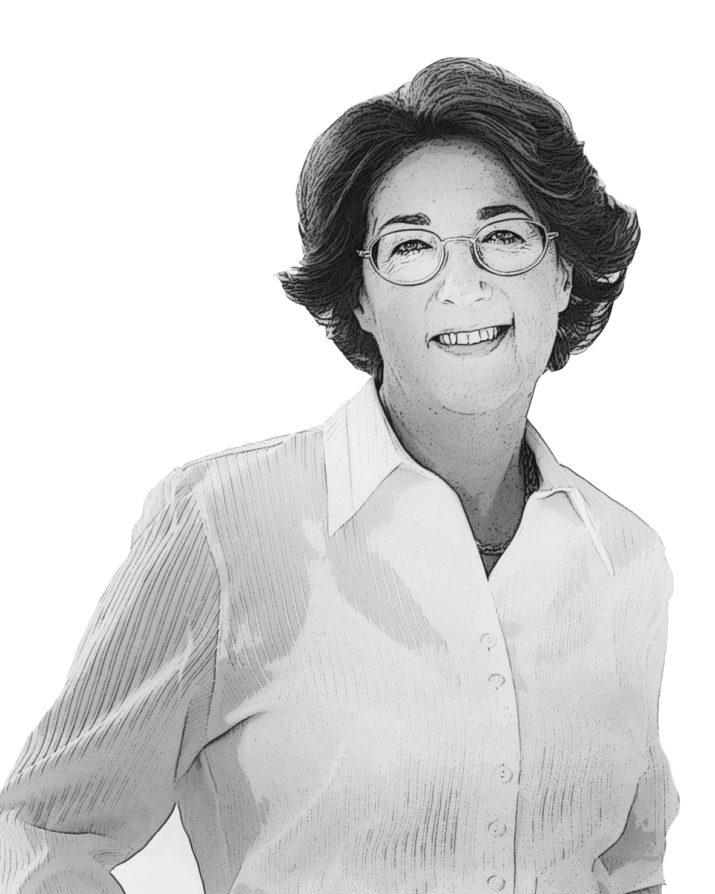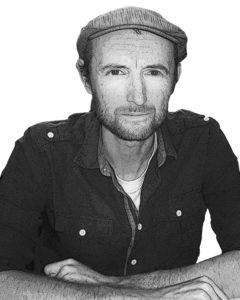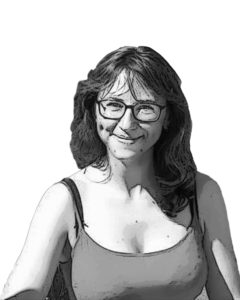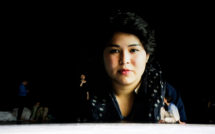

Translated from the Portuguese by Jethro Soutar and Annie McDermott.
This was, he said, just a preliminary chat, to give me an overview of the project and see if I’d be interested in taking part. A formal invitation would follow if I was. But I had no intention of committing to anything, I’d think about it and let him know in a few days’ time.
We were in the director’s office at CAM, the Contemporary Art Museum. His secretary, who’d called the previous week to make the appointment, had just come in, bearing two cups of coffee on a tray; through the window, I could see the gardens of the Gulbenkian Foundation.
I already knew the director, from when CAM had exhibited my work some years before. He obliged me with a little flattery, telling me he’d been following my career for the past twenty years and was a great admirer of my work. Then after a few more obliging comments, he got to the point:
He was planning to invite various artists to present a series of individual exhibitions based on their personal visions of Portugal. Given my profile, they’d decided at a recent board meeting that they’d like the first exhibition to be mine.
And, assuming I agreed, of course, they thought I could take Lisbon as my theme. Or rather my impressions of certain aspects of Lisbon, he clarified, putting his coffee cup back down on the tray.
I was taken aback by his proposal, but I didn’t want to interrupt, and let him say his piece.
Lisbon is of course an inexhaustible subject, he continued, so we’ll be asking other artists to approach it in their exhibitions too.96+
The exhibitions would open here and have a decent run, then tour several other countries. At this stage, he said, rounding off, he simply wanted to know whether I’d be interested.
We talked a while longer, but I didn’t ask any questions or seek to prolong the conversation. I promised to think the matter over and give him an answer within a few days.
I went outside and strolled around among the trees. The Gulbenkian gardens are very green, with almost no flowers. I always find the green soothing, so too the lines of the gardens, all horizontals and verticals. Trees and water. Sky, a lake, paving stones skirted by bushes, and broad stretches of grass.
I sat down on a seat in the small open-air amphitheater. There were other people there too, some reading books or newspapers, others—couples—embracing, and children running around on the grass below, under their mothers’ watchful gaze. A group in tracksuits was practicing martial arts. Above us, a plane made its way across the sky, leaving a white trail that took some time to disappear.
The idea of this series of exhibitions made some sense. But why take it on tour? It was true that for millions of perfectly well-informed people across the globe, Portugal barely existed: at most, it was a narrow strip of land tacked onto the side of Spain. And Lisbon was probably the least known of all European capital cities, indeed one of the least known capitals anywhere in the world.
But what exactly was the aim of the project? For the artists to put Portugal on the map?
Ironic, really, in a country where culture has always been so chronically undervalued.
It would be easy to say yes, I thought, leaving the gardens and heading for my car on Avenida António Augusto de Aguiar.
Choose a point-of-view, a personal vision of the city. Nothing could be simpler. And then, with my sharp, unforgiving and sometimes cruel gaze, turn what I saw into a work of art. After all, wasn’t that what I always did?
This time, however, I was going to refuse. The only thing I felt inspired to do was get the matter resolved as soon as possible.
(Dear Sir,
Although honored and grateful for your invitation, I regret to inform you that I’ll be unable to participate in the project due to prior commitments.
Yours faithfully, Paulo Vaz)
A dozen or so words to that effect and never think about it again.
Then Sara phoned.
“Yes, I’ve just left the gallery,” I said. “I’ll tell you about it later. I’m going to say no.”
I got into my car and pulled out into the heavy traffic moving towards Graça.
It was when the car in front stopped sharply at an amber light and I narrowly avoided running into the back of it that I suddenly imagined you, Cecilia, having that morning’s meeting instead of me. Many years ago.
“This project actually already exists,” you’d have told the director of CAM without hesitation. “Paulo Vaz and I have been working on it for a while. Assuming he agrees, we’d be glad to accept your proposal. I’ll talk to Paulo and let you know in a few days.”
And the director of CAM would have smiled, charmed, feeling that things could hardly have turned out better: he’d proposed a vague idea and you’d given him a concrete project in response, which had not only been planned but also, by the sound of it, was practically ready.
You would’ve come home and told me all about it, filled with enthusiasm and doubtless in fits of laughter. If the conversation had ever taken place.
And you wouldn’t have been the least bit surprised by this extraordinary coincidence, in which something we’d dreamed up almost randomly seemed to have taken shape elsewhere, as if by magic, and sought us out via this prestigious institution.
You always believed in the impossible, so none of it would’ve struck you as particularly strange. Suddenly we were being offered all the resources we needed, and it was simply a matter of getting to work and bringing that long-imagined project to fruition.
But neither of us had ever taken the idea of an exhibition about Lisbon seriously. It was just for our own amusement, a private game to challenge each other’s imagination. Wherever we went in the city we’d look around as if it belonged to us, as if we were going to make it into something else.
We went around on foot or on the Vespa I’d bought second-hand. It made an awful racket when it got going and always needed a kick-start, and then you’d sit behind, clinging onto me, your hair blowing in the wind. The most perfect image of freedom, or feeling of freedom, I’ve ever had, was speeding along with you, your arms wrapped around my waist, your hair flying in the breeze.
After a while we began wearing helmets and your hair no longer streamed out behind us. We still flew, though, down the cobbled and tarmacked streets. Runaways, is perhaps the best word to describe us in those days.
That was how I drew you back then: one foot still outstretched, as if you’d just climbed up behind me and the Vespa was already on the move. We’re both seen from behind, a little dust kicking up, and your head, resting against my body, is turned slightly inwards, leaving your face only partially visible as the streets disappear around us, or we stop seeing them, aware of nothing but the speed we reach in a matter of seconds. Off we go, sitting up straight on the flat, leaning in on the curves. You give yourself over to our game of balance, swaying your body just the right amount.
That’s what most of the drawings were of: movement and the play of opposites; the tension between precision and excess.
It was the first time you appeared in my work. Albeit with only half a face, and with speed blurring your contours.
You would’ve accepted the invitation right away, as long as I agreed.
“That’s why I’m turning it down,” I told Sara later. “It was a joint project, mine and Cecília’s. It wouldn’t make sense to do it without her.”
Of course, I could always do something else, something totally different, I thought a few days later.
But the only thing that really interested me was going back to the project we’d dreamed up together all those years ago. We’d had the good sense not to take it too seriously at the time, but now, through sheer stubbornness, not only would I take it seriously but I’d also bring it into being. A real exhibition, in the real world.
“This project actually already exists; I worked on it with Cecília Branco a while ago. If she agrees, I’d be glad to accept the invitation.”
I obviously couldn’t say that to the director of CAM, Cecília. But nor could I present the project as my own.
Having pictured you in my place agreeing to the proposal, it occurred to me that I might be able to take the job on after all, as long as you were included. “City of Ulysses. An exhibition by Paulo Vaz, based on a project by Cecília Branco.”
That way I wouldn’t be stealing your ideas and passing them off as my own. I’d even credit you with the concept, though that wasn’t entirely accurate. But it’d make up for the fact that the work was ultimately appearing under my name. And it would be a chance to recover all those things we’d thought up that would otherwise be lost. A new version of “Lisbon Revisited,” with both our signatures.
It seemed like a simple solution, although nothing is actually ever simple. And nothing is ever as it seems, as experience teaches us time and time again.
Teolinda Gersão was born in Coimbra (Portugal) and has lived in Germany, São Paulo, and Mozambique. She is the author of sixteenth books, novels and short story collections, translated into twelve languages. She was awarded the Pen Club Prize for the Novel twice in 1981 and 1989, the Grand Prix for the Novel by the Portuguese Writers´ Association in 1995, the Fiction Prize of the ICLA (International Critics´ Literary Association) in 1995 and the Portuguese Writers´ Association’s Grand Prix for the Short Story in 2001, the Literary Prize of the Inês de Castro Foundation in 2008 and the Prize for Novel António Quadros in 2012.
Jethro Soutar is a translator of Portuguese and Spanish. His translation of By Night The Mountain Burns by Juan Tomás Ávila Laurel was shortlisted for the 2015 Independent Foreign Fiction Prize. He recently founded Ragpicker Press and co-edited its debut title, The Football Crónicas, a collection of Latin American narrative non-fiction.
Annie McDermott’s translations from Spanish and Portuguese have appeared in magazines including Granta, World Literature Today, Asymptote, and The Missing Slate. In 2013, she was the runner-up in the Harvill Secker Young Translators’ Prize, and in 2014 she was a translator-in-residence at the Crossing Border music and literature festival in The Hague.


This excerpt from City of Ulysses is published by permission of Dalkey Archive Press. Copyright © 2011 by Teolinda Gersão. Translation copyright © 2017 Jethro Soutar and Annie McDermott.
Photo: Teolinda Gersão, Private
Photo: Jethro Soutar, Private
Photo: Annie McDermott, Private
Published on June 6, 2017.




